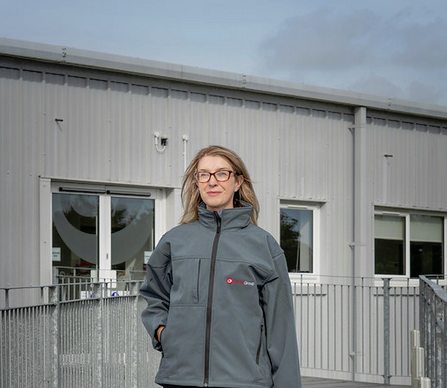But flexibility of the renewable heat solution is key, not just efficiency, says Kensa Heat Pumps New commitments to reduce CO2 emissions from homes by up to 30 percent over current standards has been welcomed by the UK’s leading supplier of ground source heat pumps, and UK-based manufacturer, Kensa Heat Pumps. Coinciding with the manufacture of it’s 10,000th heat pump, the Cornish-based company calls for the revised Building Regulations standards for newbuild homes, due to be brought in from June 2022, to be a catalyst for flexibility to be viewed as a key factor when assessing renewable energy solutions rather than efficiency alone, and hopes for Standard Assessment Procedure (SAP) ratings to reflect this following the Part L and F revisions to the regulations. Simon Lomax, CEO of the Kensa Group explains: “We welcome the launch of the latest Part L standards which will encourage more housebuilders to consider low carbon heating choices. We remain convinced that our solution – small ground source heat pumps in each dwelling, linked to a communal ground array – provides the best outcomes for the house builder, house purchaser, environment, and electricity system especially as our ‘split ownership’ model divorces the cost of the ground array from the housebuilder. To support deployment, it is vital that SAP can accurately assess the performance of emerging system architectures and technologies. Many ground arrays can utilise waste heat to bolster the source temperature to improve efficiency and reduce running costs and carbon emissions. This advantage must be reflected in SAP. Equally, the most appealing solutions, for house builders and house owners, will be heat pumps integrated with heat batteries to maximise the ability of the heat pump to operate when electricity is both low cost and low carbon. Pure efficiency is no longer the key metric: flexibility is more important to deliver the best outcomes for all stakeholders.” Kensa’s ‘split ownership’ model is currently being demonstrated through an ERDF funded scheme in Cornwall called Heat The Streets, featuring street-by-street ground source heat pump deployment delivered by Kensa Utilities. Kensa Utilities, and other entities, will fund, own and maintain the underground infrastructure in return for a small standing charge levied on each connected property. Simon says, “the superior efficiency, flexibility, reliability, and durability of a ground source heat pump will ensure total running costs and ownership costs fall below those of an air source heat pump.” Kensa’s Green Streets augmented reality experience, premiered at COP26 and modelled on the real ‘Green Street’ in Glasgow, demonstrates how a 30% reduction in carbon emissions in new builds along with the decarbonisation of heat in existing homes and business can be achieved, and the flexibility the technology brings to the electricity grid, whilst lowering environmental and societal costs. Visit Green Street here.








